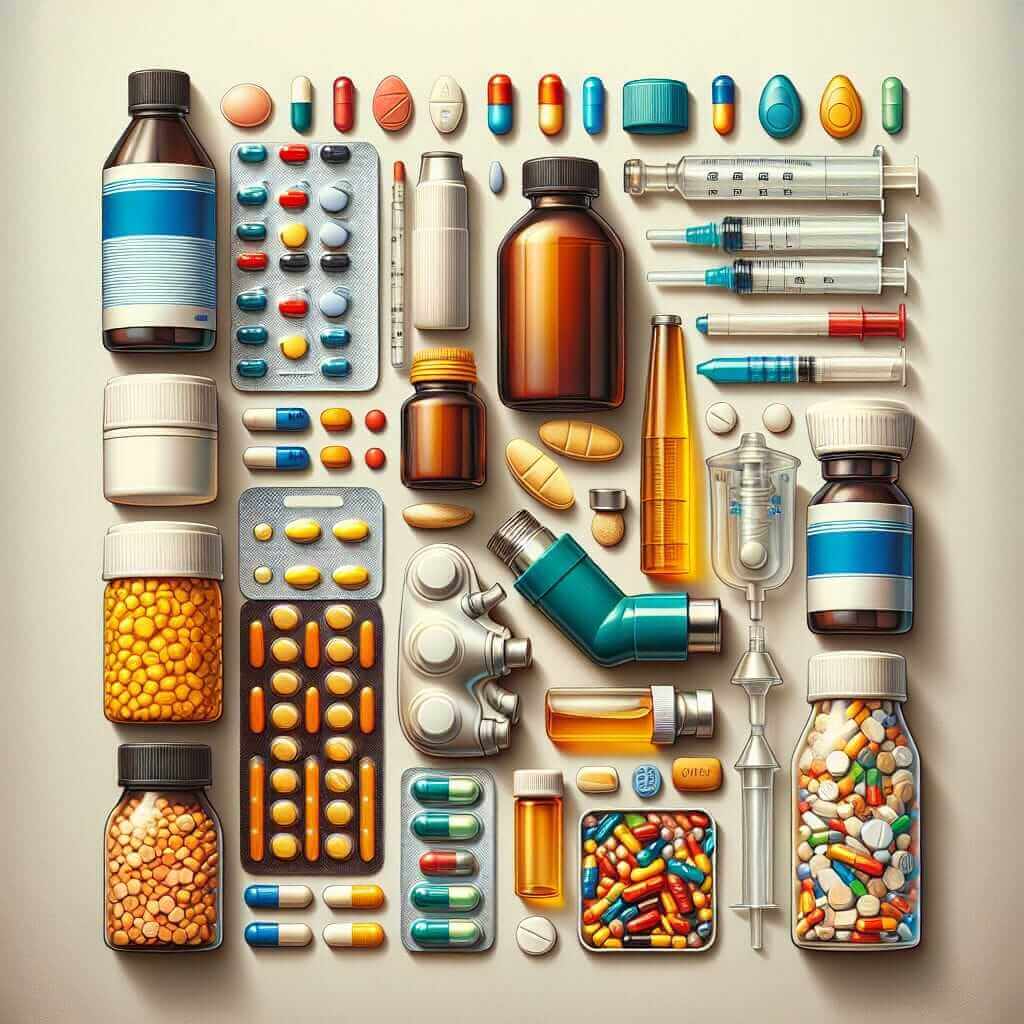Are you preparing for the IELTS exam and feeling overwhelmed by the sheer volume of vocabulary required? Don’t worry! This comprehensive guide focuses on “medication” and its related terms, equipping you with the language skills needed to excel in the healthcare and medical contexts frequently appearing in the IELTS.
Let’s break down this essential word, its synonyms, and provide you with clear examples to solidify your understanding.
- Medication (/ˌmedɪˈkeɪʃən/): (noun) A substance used to treat an illness or injury.
- Example: The doctor prescribed medication to alleviate the patient’s pain.
Understanding “Medication” and Its Synonyms
In the realm of healthcare, understanding and using the term “medication” accurately is crucial. Let’s explore its various facets:
Definition and Pronunciation
“Medication,” pronounced /ˌmedɪˈkeɪʃən/, refers to any substance used for medical treatment, primarily to cure, alleviate, or prevent diseases.
Synonyms and Examples
To enhance your vocabulary, let’s delve into some synonyms for “medication”:
- Drugs: (noun) /drʌɡz/ – Substances used medically for treating illnesses.
- Example: The development of new drugs has revolutionized cancer treatment.
- Pharmaceuticals: (noun) /ˌfɑːrməˈsuːtɪkəlz/ – Medicinal drugs prepared and sold commercially.
- Example: The pharmaceutical industry plays a vital role in global healthcare.
- Remedies: (noun) /ˈremədiz/ – Treatments or cures for illnesses.
- Example: Herbal remedies are gaining popularity as complementary medicine options.
- Treatment: (noun) /ˈtriːtmənt/ – Medical care given to a patient for an illness or injury.
- Example: Early detection and treatment are crucial for improving cancer survival rates.

“Medication” in the IELTS Exam
“Medication” and its synonyms are frequently encountered across various sections of the IELTS exam, particularly in:
- Listening: You might hear dialogues involving doctor-patient consultations discussing medications, dosages, or side effects.
- Reading: Passages on healthcare, medical research, or public health campaigns often mention medication and its impact.
- Writing Task 2: You could be asked to discuss topics related to healthcare access, the pharmaceutical industry, or the benefits and drawbacks of modern medicine, all of which might require you to use vocabulary related to “medication.”
- Speaking: When discussing personal health, healthcare systems, or medical advancements, you might need to use the word “medication” and its synonyms.
Using “Medication” in IELTS Responses
Let’s look at how you can effectively incorporate “medication” and its related terms into your IELTS responses:
Listening Example:
- Audio: “The doctor recommended taking the medication twice daily, before meals, to minimize potential stomach upset.”
- Question: What instructions did the doctor give about the medication?
- Answer: The doctor advised the patient to take the medication two times a day before eating to avoid any stomach problems.
Reading Example:
- Passage Excerpt: “The availability of affordable medication is crucial for ensuring positive health outcomes in developing countries.”
- Question: What is the significance of affordable medication in developing nations?
- Answer: Access to reasonably priced medicines is vital for improving the health of people in developing countries.
Writing Task 2 Example:
- Topic: “Discuss the advantages and disadvantages of traditional medicine versus modern medicine.”
- Sample Sentence: “While modern medicine offers a vast array of pharmaceuticals for treating various ailments, traditional medicine emphasizes holistic healing and preventative measures.”
Speaking Example:
- Examiner: “How has healthcare changed in your country over the past decade?”
- Candidate: “There has been a significant increase in the availability and affordability of medication, making healthcare more accessible to a larger portion of the population.”
Collocations with “Medication”
Combining “medication” with other words can enrich your language and demonstrate your fluency:
- Prescribe medication: The doctor prescribed pain medication to help manage the patient’s discomfort.
- Administer medication: Nurses are trained to administer medication safely and effectively.
- Dispense medication: Pharmacists are responsible for dispensing medication according to a doctor’s prescription.
- Over-the-counter medication: Some medications for common ailments, like headaches, can be purchased over-the-counter without a prescription. You can find more vocabulary related to over-the-counter medications in this helpful article: https://www.ielts.net/what-are-some-words-for-over-the-counter-medications/
- Side effects of medication: It’s essential to be aware of the potential side effects of any medication before you start taking it. Discover more about discussing side effects of medication in this informative article: https://www.ielts.net/how-do-you-talk-about-side-effects-of-medication/
Idioms Related to “Medication”
While not directly using the word “medication,” these idioms are useful when discussing health and treatment:
- A bitter pill to swallow: Failing the exam was a bitter pill to swallow, but he learned from the experience. (Meaning: an unpleasant but necessary experience)
- Back on one’s feet: After a week of rest and medication, she was finally back on her feet. (Meaning: fully recovered)
- Cure-all: Many people believe that a healthy lifestyle is the best cure-all. (Meaning: a solution to all problems)
Conclusion
Mastering vocabulary related to “medication” is essential for success in the IELTS exam, especially in tasks related to health and medicine. By understanding the various synonyms, practicing their usage in context, and familiarizing yourself with related collocations and idioms, you’ll be well-equipped to confidently discuss health-related topics. Remember to listen for these words in practice materials and use them in your speaking and writing to solidify your understanding.
For further practice, explore resources related to describing different types of medications: https://www.ielts.net/what-are-some-words-for-different-types-of-medication/ and discussing pain relief medication: https://www.ielts.net/how-do-you-talk-about-medication-for-pain-relief/. Good luck!